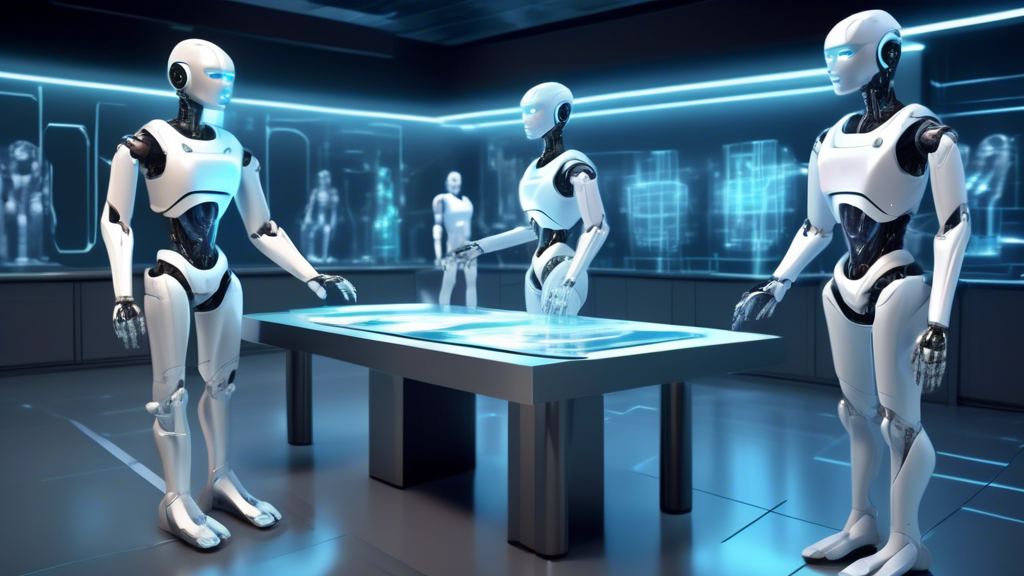The field of artificial intelligence (AI) has evolved significantly over the past few decades, with two fascinating branches emerging at the forefront: virtual humans and robotics. These advancements hold tremendous potential to revolutionize industries, enhance our daily lives, and even redefine what it means to be human. This article delves into the intricacies, potential applications, and ethical considerations surrounding synthetic intelligence manifested in virtual humans and robotics.
Defining Virtual Humans
Virtual humans, also known as digital or synthetic humans, are AI-driven entities designed to replicate human behavior, appearance, and interaction. These entities range from simple chatbots and virtual customer service agents to highly sophisticated avatars that can engage in complex conversations and exhibit nuanced emotional expressions. Companies like Soul Machines and Synthesia are leading the charge, creating virtual humans with lifelike appearances and fluid interactions driven by advanced neural networks and machine learning algorithms.
Innovations in Robotics
Robotics, on the other hand, refers to the design, construction, and use of robots to perform tasks ranging from mundane to highly complex activities. Modern robots employ AI to navigate environments, make decisions, and interact with humans and other machines. Boston Dynamics’ robots, like the quadruped Spot and the bipedal Atlas, showcase remarkable advancements in mobility and dexterity, while collaborative robots (cobots), used in manufacturing, emphasize safety and cooperation with human workers.
Applications and Impacts
Healthcare
Both virtual humans and robots have made significant inroads into the healthcare sector. Virtual humans are being employed as psychological therapy assistants, helping to diagnose and treat mental health conditions. On the other hand, medical robots assist in surgeries, provide physical therapy, and even aid in patient rehabilitation, significantly improving the quality of care and precision of medical procedures.
Customer Service
In customer service, virtual humans provide 24/7 support with a personalized touch, handling inquiries, troubleshooting issues, and even managing transactions. This not only enhances customer satisfaction but also allows human employees to focus on more strategic tasks. Robotics in retail, exemplified by service robots like SoftBank’s Pepper, offer in-store assistance, inventory management, and even personalized shopping experiences.
Education and Training
Virtual humans are revolutionizing education by serving as tutors or mentors, providing interactive learning experiences tailored to individual student needs. Simulations powered by AI can create immersive learning environments, offering hands-on experience without real-world risks. Robotics also play a crucial role in STEM education, giving students the opportunity to engage in hands-on learning and experiment with building and programming robots.
Entertainment and Media
The entertainment industry has seen a surge in the use of virtual humans for creating digital actors capable of delivering complex performances in films, video games, and virtual reality experiences. Meanwhile, robotics contribute to special effects, animatronics, and even theme park attractions, pushing the boundaries of what is possible in entertainment.
Ethical Considerations
As with any transformative technology, the rise of virtual humans and robots comes with ethical considerations that must be addressed. Issues of privacy, data security, and consent are paramount when dealing with AI entities that interact closely with humans. The potential for job displacement owing to automation is another significant concern, requiring a balanced approach to ensure that these technologies complement rather than replace human workers.
The Future of Synthetic Intelligence
Looking ahead, the integration of virtual humans and robotics with advancements in AI promises a future where synthetic intelligence becomes increasingly indistinguishable from human intelligence. Innovations such as emotion recognition, conversational AI, and adaptive learning algorithms will continue to refine the capabilities of these entities. As we navigate this exciting frontier, close collaboration between technologists, ethicists, and policymakers will be essential to harness the benefits while mitigating the risks of this brave new world.
In conclusion, virtual humans and robotics are pioneering the realm of synthetic intelligence, transforming sectors from healthcare to entertainment. As these technologies continue to advance, they promise to not only enhance human capabilities but also push the boundaries of our understanding of intelligence and interaction. The journey has just begun, and the possibilities are boundless.
Discover Royalty Free Music for Content Creators – Pro Sync Licensing Available


